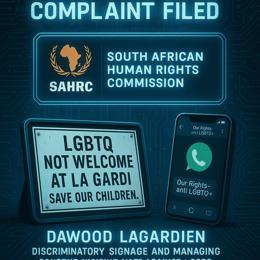Image created by AI
Call for Action: Human Rights Groups Urge Halt to Crackdown in Zimbabwe Ahead of SADC Summit
Amnesty International and Human Rights Watch have issued a grave warning to Zimbabwean authorities: halt the crackdown on opposition and civil society members ahead of the forthcoming Southern African Development Community (SADC) summit, set for 17 August 2024 in Harare. With over 160 arrests reported involving political officials, activists, and journalists, these organizations are advocating for immediate and unconditional release of all detainees and for investigations into allegations of physical abuse and mistreatment in custody.
The escalating situation, marked by instances of violence, torture, and unfounded detentions, has raised serious concerns among human rights advocates. Khanyo Farise, Amnesty International's Deputy Regional Director for East and Southern Africa, described a climate of fear and repression triggered by the Zimbabwean security forces' aggressive actions, which have included teargassing residents, brutal beatings necessitating hospital visits, enforced disappearances, and torture of detainees.
As Zimbabwe prepares to host the SADC summit and receive the bloc's leadership baton from its current chairperson, President João Lourenço of Angola, and Zambian President Hakainde Hichilema who chairs its Politics, Defense, and Security Cooperation Organ are called on to publicly denounce Zimbabwe's government’s rights violations and advocate for a resolution.
The crackdown traces back to mid-June, beginning with a police raid on an opposition party gathering that led to the arrest of 78 individuals from the Citizens Coalition for Change (CCC) party, headed by Jameson Timba. Following the violent raid, President Emmerson Mnangagwa issued a stern warning against opposition activities, especially in the context of regional and worldly events. This veiled threat was underlined by subsequent actions from state forces, including arrests of student leaders and social activists.
Human Rights Watch’s senior Africa researcher, Idriss Ali Nassah, made it clear that the Zimbabwe authorities' forceful measures have been linked to their efforts to host the SADC summit, arguably setting a "dangerous tone" for the bloc's commitment to human rights under Mnangagwa’s potential chairmanship.
The suppression of fundamental freedoms not only places a shadow over the upcoming summit but also challenges the collective human rights ethos of the SADC as a regional body. The African Commission on Human and Peoples’ Rights, as per the groups’ recommendations, ought to demand the rapid and unconditional release of everyone detained merely for exercising their rights.
With the SADC summit approaching, international eyes remain on Zimbabwe, observing not just the fate of the currently detained but also the broader implications for human rights within the SADC region.










